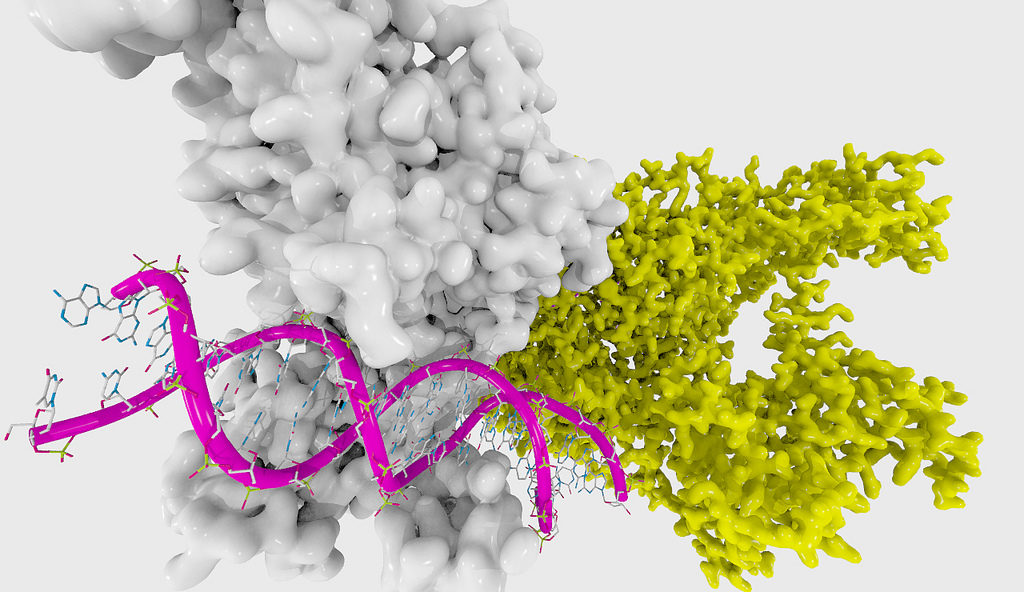A new study, published in the American Journal of Psychiatry, suggests that the biological impact on genetic code that has been associated with traumatic experiences is more likely due to environmental toxins, such as smoking (and potentially, other drug use). The researchers found a number of epigenetic changes that appeared to correlate with childhood trauma. However, when they included smoking in their analysis, their findings disappeared. They conclude that smoking—not trauma itself—is responsible for most of the observed changes in DNA.
Epigenetics is the theory that a person’s life experiences, such as childhood trauma, have a biological impact on the way DNA is expressed. These changes are thought to occur through DNA methylation—a process which alters the way DNA is read, based on environmental stimuli. Thus, according to epigenetic theory, a person’s experiences will change the way their genetic code carries out its tasks within the body.

Proponents of the epigenetic theory of mental health argue that these changes could predispose individuals to future mental health problems. However, if these changes are actually due to confounding factors, such as smoking, they may not provide the answers that psychiatry seeks.
According to the researchers, their findings “do not support the hypothesis of robust changes in DNA methylation in victimized young people. We need to come to terms with the possibility that epigenetic epidemiology is not yet well matched to experimental, nonhuman models in uncovering the biological embedding of stress.”
That is, the research methods of epigenetic theory have not uncovered the effects that researchers expected—and may not be suitable for studying how human experience is connected to biology.
The researchers in the current study write that they “were surprised by the dearth of findings, and were motivated to turn our data upside down in an effort to detect significant associations.” Yet, even running their analyses in numerous different ways, they were unable to find a robust effect.
In fact, this study was particularly strong in its methodology. It used an extensive database of twins in the UK, including people from diverse socioeconomic statuses. The study also used various methods for ensuring thorough report of traumatic experiences and acquired the data at multiple time points. Because it was a database of twins, the researchers were able to also account for the confounding factor of the difference between environment and genetics.
The study included 1,669 participants whose DNA was analyzed (via blood sample). Home visits were conducted five times to administer the measures of childhood adversity and traumatic experiences—when the participants were 5, 7, 10, 12, and 18 years old. The researchers then performed numerous statistical analyses. They analyzed the effects of childhood trauma, adolescent trauma, different types of traumatic experiences, and the cumulative impact of trauma on DNA methylation.
The researchers initially found many areas of significance. However, when smoking habits were factored in, very few remained. Those that did were related to childhood sexual trauma—however, the researchers urged that even these findings be taken with caution, as the sample size for this experience was small compared to the full study. Additionally, these areas were not significant for adolescent sexual trauma, casting even more doubt on the findings.
The researchers note that previous studies that claimed to find some effect may, in fact, be false positives. They identified many problems with the way previous studies were carried out, including small sample size, not correcting for the inflated probabilities after running multiple tests, and using different technologies that are not standard. Finally, this was the first study with thorough information about smoking habits, which the researchers suggest has severely compromised previous work.
Previous studies of the genes involved in mental health problems have been similarly equivocal, with contradictory findings and small sample sizes marring the research. When genetic correlates have been statistically significant, they are present across different diagnoses, and are common in healthy individuals as well, making the findings of little use.
Researchers have expressed hope that the burgeoning field of epigenetics would provide a framework for making sense of these poor findings. They considered it the missing link—discovering the biological mechanism of environmental changes would tie a person’s genetics to their experiences and mental health. However, this new study demonstrates that even if such changes are found—such as for childhood sexual trauma—they may appear insubstantial compared to the impact of environmental toxins such as cigarettes.
****
Marzi, S. J., Sugden, K., Arseneault, L., Belsky, D. W., Burrage, J., Corcoran, D. L. . . . Caspi, A. (2018). Analysis of DNA methylation in young people: Limited evidence for an association between victimization stress and epigenetic variation in blood. The American Journal of Psychiatry. Published online ahead of print. doi: 10.1176/appi.ajp.2017.17060693 (Link)















Wow, I will have to look further at the data but I would believe this. Besides the inherent natural dangers of tobacco, it’s also a biological “sponge” that soaks up contaminants in soil and fertilizer much more than other crops, a “perfect storm” when phosphate fertilizers contain polonium-210…
An NYT article about it: https://query.nytimes.com/gst/abstract.html?res=9E00E2DC1E3EF932A35751C1A9609C8B63&legacy=true
Report comment
Well, smoking very well might mediate the effect. In other words, childhood trauma may cause someone to be a smoker (I know there are studies showing those with childhood trauma are more likely to be smokers), which then causes epigenetic changes. In that case, then I think it is valid to say that childhood trauma causes epigenetic changes via increased likelihood of smoking.
Report comment
*IF* this article is correct, then we’d need to know the exact mechanism by which soking tobacco can cause these epigenetic changes. The OTHER big confounding factor here is the fact that ALL corporate/commercial cigarettes are laced with numerous toxic chemicals that are NOT found in tobacco. And there are NO studies which compare organic tobacco smoking with consuming the chemical-laden corporate cigarette products. How do we know it’s the *tobacco*, and not all the OTHER toxic chemicals the industry adulterates cigarettes with?
Report comment
Psychiatrically drugging child abuse victims is the number one actual function of today’s psychiatric industry, according to your own medical literature.
And the serious DSM disorders are all illnesses that can be created with the psychiatric drugs, meaning they have an iatrogenic etiology, as opposed to an epigenetic etiology or genetic etiology.
The Nazi psychiatrists were wrong about their eugenics theories. And the US psychiatrists were wrong about their genetic theories. And your epigenetic theories will be wrong also, because the psychiatric drugs are what cause illnesses like bipolar and schizophrenia. How long must the people pay for your futile research, when we already know it’s the psychiatric drugs that cause the DSM illnesses?
Report comment
Thank you for drawing attention to this research. People who are distressed for any reason are more likely to smoke, possibly because nicotine has been shown to have antidepressant properties.
Report comment